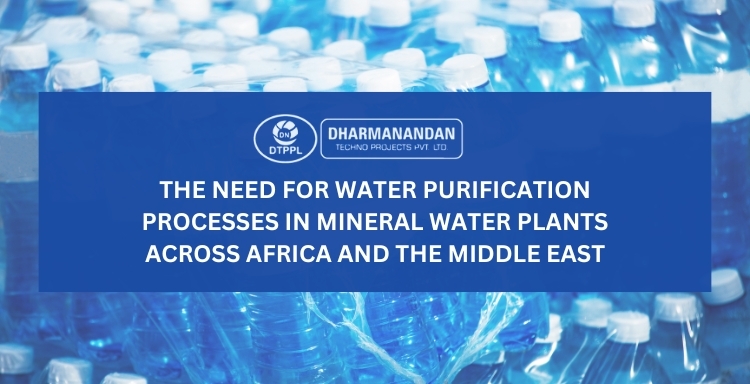
Table of Contents
The Need for Water Purification Processes in Mineral Water Plants across Africa and the Middle East
August 9, 2024
Water purification is a critical process in mineral water plants, ensuring that the water meets health and safety standards before it reaches consumers. Different purification methods, such as reverse osmosis (RO), ultraviolet (UV) treatment, and ozonation, play a pivotal role in removing contaminants and ensuring the purity of the water. This article will explore these processes and the importance of water purification in several countries across Africa and the Middle East, where clean drinking water is a crucial concern.
Reverse Osmosis (RO) Process
Reverse osmosis is one of the most widely used water purification methods in mineral water plants. It involves forcing water through a semi permeable membrane that filters out impurities, including salts, bacteria, and other harmful substances. RO is particularly effective in regions where water sources are heavily contaminated or saline, ensuring that the final product is pure and safe for consumption.
UV Treatment
Ultraviolet treatment is a disinfection process that uses UV light to kill bacteria, viruses, and other microorganisms in the water. Unlike chemical disinfection methods, UV treatment does not introduce any chemicals into the water, making it a popular choice for maintaining the natural taste of mineral water while ensuring it is safe to drink.
Ozonation
Ozonation involves the infusion of ozone gas into the water, which oxidizes and destroys contaminants such as bacteria and organic materials. Ozone is a powerful disinfectant and is often used in combination with other purification methods to ensure the highest levels of water purity.
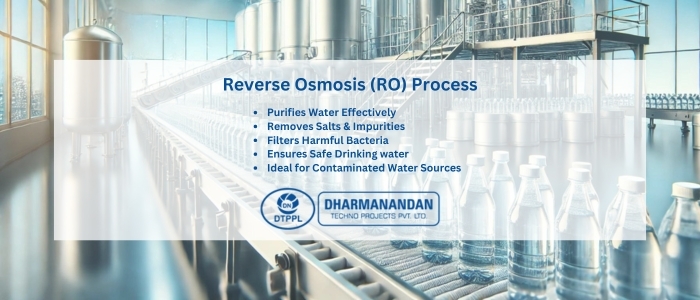
Importance of Water Purification in Various Countries
Nigeria
In Nigeria, access to clean drinking water remains a significant challenge due to pollution, poor infrastructure, and inadequate water treatment facilities. Water purification processes like RO, UV treatment, and ozonation are essential to ensure that mineral water plants can provide safe drinking water to the population. Given the high levels of waterborne diseases in Nigeria, these processes are critical for public health.
Cameroon
Cameroon faces similar challenges with water contamination from industrial waste, agricultural runoff, and inadequate sanitation systems. Water purification in mineral water plants is vital to provide clean drinking water, particularly in urban areas where the demand for bottled water is high. The integration of advanced purification methods helps mitigate the risks of consuming contaminated water.
Democratic Republic of Congo
In the Democratic Republic of Congo (DRC), access to clean water is a major issue, with many regions relying on untreated surface water sources. The implementation of water purification processes in mineral water plants is crucial to provide safe drinking water and reduce the prevalence of waterborne diseases. RO and UV treatment are particularly important in this context.
South Africa
South Africa faces water quality issues due to pollution and the contamination of water sources. The mineral water industry plays a critical role in providing clean drinking water through advanced purification processes. Ozonation and UV treatment are widely used to ensure that bottled water is free from harmful microorganisms and contaminants.
Egypt
Egypt’s Nile River is the primary water source, but it faces contamination from agricultural runoff and industrial waste. Mineral water plants in Egypt use a combination of RO, UV treatment, and ozonation to purify water, ensuring it is safe for consumption. These processes are vital for maintaining public health in a country with a growing demand for bottled water.
Kenya
In Kenya, access to clean water is a significant challenge, particularly in rural areas. Water purification processes in mineral water plants are essential to provide safe drinking water to the population. UV treatment and ozonation are commonly used to remove contaminants and ensure the water meets health standards.
Ghana
Ghana’s water sources are often contaminated due to poor sanitation and industrial pollution. The mineral water industry in Ghana relies on purification methods like reverse osmosis and UV treatment to provide clean drinking water. These processes are critical in addressing the health risks associated with contaminated water sources.
Angola
Angola faces challenges with water quality due to inadequate infrastructure and pollution. The mineral water industry uses purification processes such as RO and ozonation to ensure the water is safe to drink. These methods are essential in providing clean water in a country where access to safe drinking water is limited.
Uganda
In Uganda, water contamination from agricultural activities and inadequate sanitation is a major concern. Water purification processes in mineral water plants, including UV treatment and reverse osmosis, are crucial to providing safe drinking water and preventing waterborne diseases.
Rwanda
Rwanda’s water sources are prone to contamination, making water purification essential. The mineral water industry in Rwanda uses advanced purification methods to ensure that bottled water is safe for consumption. Ozonation and UV treatment are particularly important in maintaining water quality.
Benin
In Benin, access to clean drinking water is limited, and waterborne diseases are prevalent. The mineral water industry plays a vital role in providing safe water through purification processes such as reverse osmosis and UV treatment. These methods help to ensure that the water is free from harmful contaminants.
Liberia
Liberia’s water quality is often compromised due to inadequate infrastructure and pollution. Mineral water plants in the country use purification processes like ozonation and UV treatment to provide clean drinking water. These processes are essential for public health, particularly in urban areas.
Gabon
Gabon has abundant water resources, but contamination remains a concern. The mineral water industry uses purification methods such as reverse osmosis and UV treatment to ensure that the water is safe to drink. These processes are critical in providing clean water to the population.
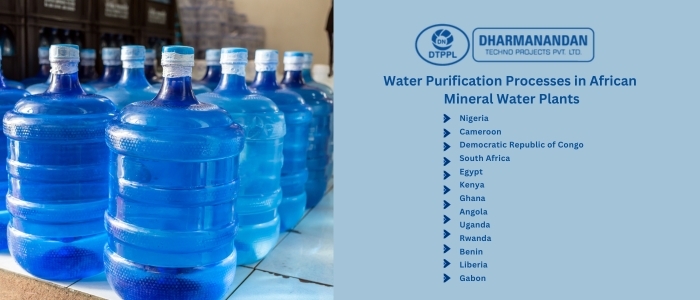
Saudi Arabia
In Saudi Arabia, the scarcity of freshwater resources makes desalination and water purification essential. The country relies heavily on technologies like reverse osmosis to convert seawater into potable water. In mineral water plants, these processes are crucial to ensuring that the water is not only safe to drink but also free from any residual salts or chemicals that could affect taste and health.
Qatar
Qatar, like Saudi Arabia, faces challenges related to water scarcity and relies on desalination. The country’s mineral water industry depends on advanced purification methods to meet the high standards expected by consumers. UV treatment and ozonation are particularly important in maintaining the quality and safety of bottled water in a market that values premium products.
UAE
The United Arab Emirates (UAE) is another country where water purification is vital due to the reliance on desalinated seawater. The mineral water industry in the UAE uses state-of-the-art purification processes, including reverse osmosis and UV treatment, to ensure that the water is pure, safe, and meets the stringent regulatory standards set by the government.
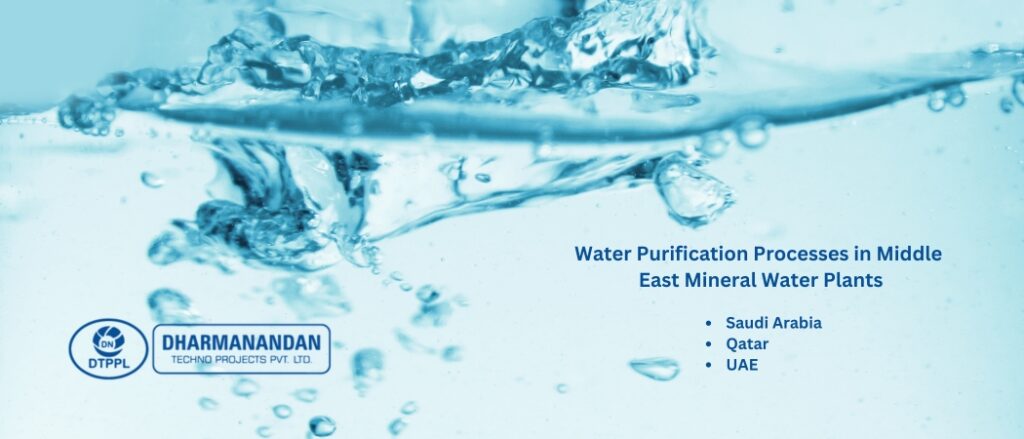
Conclusion
Water purification processes in mineral water plants are essential across various countries, especially in regions where water quality is compromised. Methods like reverse osmosis, UV treatment, and ozonation ensure that the water is safe for consumption, free from contaminants, and meets the health standards required in each country. The importance of these processes cannot be overstated, as they play a crucial role in safeguarding public health and providing access to clean drinking water.
About Author
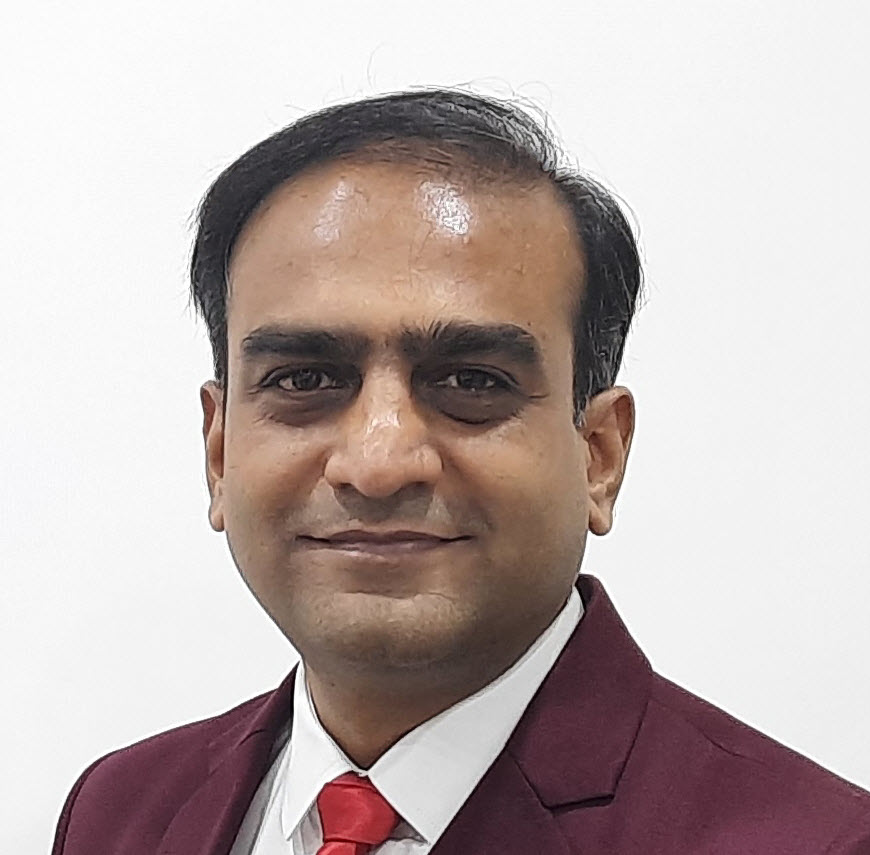
Director – Global Marketing and Sales
Mr. Bhavesh from Dharmanandan Techno Projects Pvt. Ltd. has played a pivotal role in elevating the DTPPL brand to the global stage, leveraging his exceptional expertise in marketing and communications. He is committed to helping clients achieve significant growth while strengthening their own brands. Dharmanandan Techno Projects Pvt. Ltd. is a leading manufacturer and supplier of water purification systems and turnkey solutions for mineral water plants. With years of experience in designing and delivering high-quality water treatment solutions, the company provides end-to-end services, including system design, installation, maintenance, and ongoing support. Specializing in scalable and customizable water plants, DTPPL has successfully served industries worldwide, ensuring clean and safe drinking water across diverse applications.




